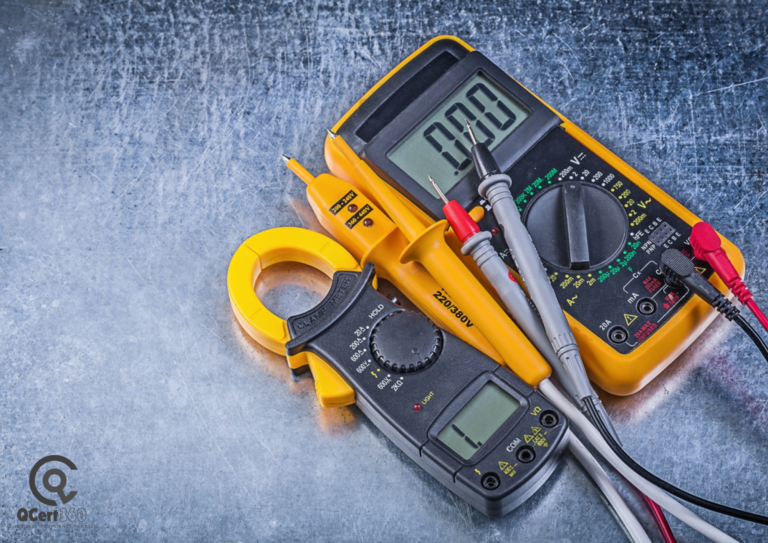
If you’re an electronics manufacturer in South Africa looking to access the EU market, CE certification isn’t optional—it’s essential. Without the CE mark, your products won’t even clear customs in Europe. Whether you’re making smart meters, IoT sensors, or printed circuit boards, CE conformity assessment ensures your devices meet EU safety, health, and environmental standards.
But here’s the thing: for small and mid-sized businesses (SMEs), especially in South Africa, the process can feel overwhelming—technical jargon, regulatory hurdles, and budget concerns. The good news? It’s more achievable than you think, especially with the right guidance and planning.
Let’s break it down.
What Is CE Certification and Why Does It Matter Get CE Certified to Export?
CE certification is your passport into the European Economic Area (EEA). It shows that your electronics comply with all applicable EU directives—think low-voltage safety, electromagnetic compatibility (EMC), radio equipment, and even environmental impact through RoHS compliance.
For electronics manufacturers in South Africa, CE certification is increasingly becoming a non-negotiable requirement for global growth. It opens doors not only in the EU but also in adjacent markets that recognize CE marking.
Real-World Case Study: From Cape Town Startup to EU Exporter
A small electronics SME in Cape Town had developed a line of IoT-based environmental monitoring sensors for smart homes. They were generating local buzz but couldn’t scale beyond South Africa. Enter CE certification.
With support from Qcert360, they navigated the full CE certification process for exporting electronics to the EU—from understanding applicable EU directives to creating a technical file and performing conformity assessments.
Qcert360 helped identify a suitable RoHS testing lab for electronics in South Africa, coordinated documentation in both English and Dutch for the Netherlands market, and provided hands-on guidance during the CE conformity assessment for electronics manufacturers South Africa.
Within four months, they had a CE-certified product, export-ready documentation, and contracts in Germany and Belgium. All without derailing their operations or stretching their budget beyond reach.
Where Most SMEs Struggle to Get CE Certified to Export
Let’s be honest—this isn’t a simple checkbox exercise. Here’s where most small businesses in South Africa trip up:
- Misidentifying Directives: Many startups assume CE only applies to power supply safety, missing key directives like EMC or RED (Radio Equipment Directive).
- Documentation Errors: A weak or incomplete CE documentation checklist for electronics SMEs can delay approvals by months.
- Wrong Testing Partners: Not all labs in South Africa are EU-recognized. Choosing the right RoHS testing labs for electronics South Africa is critical.
- Underestimating Costs: While CE certification isn’t free, you don’t need to break the bank. More on that next.
How Much Does It Cost? And How Can You Afford It?
The cost varies depending on the type of product, complexity, and whether you’re self-declaring or need a Notified Body. For most SMEs it is advised to get a customized quote from an CE certification agency like Qcert360.
Working with affordable CE consultants for South African SMEs, like Qcert360, helps keep costs predictable and manageable. We offer tiered packages based on your readiness level—whether you’re starting from scratch or just need testing and documentation support.
Our Cape Town and Johannesburg-based teams have experience working with startups, scale-ups, and government-backed innovation hubs, helping SMEs get CE certified electronics in Cape Town, Durban, and Pretoria without flying consultants in from Europe.
Post-Brexit: What About UKCA Marking?
Brexit introduced a new curveball: UKCA (UK Conformity Assessed) marking. So if you’re also exporting to the UK, you’ll need to comply with UKCA marking requirements for electronics exporters.
That said, the good news is that CE and UKCA share many similarities. If you already meet CE standards, getting UKCA is often a matter of minor adjustments and local registration.
Understanding the difference between CE vs UKCA for electronics exporters post-Brexit is key. With Qcert360, we help clients build dual-compliance strategies so they’re covered for both the EU and UK markets without duplicating effort.
What Does it look like to Get CE Certified to Export?
Here’s a high-level overview:
- Product Classification
Determine which EU directives apply to your electronic product (e.g., LVD, EMC, RoHS). - Testing & Evaluation
Get your product tested—locally or in EU-recognized labs. Qcert360 partners with vetted RoHS testing labs for electronics South Africa for faster results. - Compile Technical Documentation
Follow the CE documentation checklist for electronics SMEs, which includes:- Product specs
- Test reports
- Risk assessments
- User manuals
- Declaration of Conformity
- CE Conformity Assessment
Depending on your product and directive, you might self-declare or go through a Notified Body. For most SMEs, self-declaration with lab support is sufficient. - Affix CE Mark
Once everything’s in place, you can legally add the CE mark to your product.
Why Qcert360?
Here’s why electronics SMEs in South Africa work with Qcert360:
- Local Experts with Global Experience: Our team understands the regulatory landscape in both South Africa and the EU.
- Fast, Affordable CE Certification for Electronics Manufacturers South Africa: We tailor packages to your scale and budget.
- End-to-End Project Support: From lab selection and testing to documentation and market access.
- Dual Compliance: We simplify CE and UKCA approvals in one streamlined process.
Whether you’re launching in Cape Town or scaling from Johannesburg, we help South African innovators go global with confidence.
10 FAQs: CE Certification for South African Electronics Exporters
- Do I need CE certification to sell on Amazon EU?
Yes. Amazon and most B2B platforms require CE marking for electronics. - Can I use South African labs for CE testing?
Yes, but only if they meet EU-recognized standards. Qcert360 works with accredited RoHS testing labs in South Africa. - What’s the difference between CE and UKCA?
CE applies to the EU. UKCA is for the UK. Post-Brexit, you need both if exporting to both regions. - How long does the CE certification process take?
Anywhere from 4 to 12 weeks depending on your product and readiness. - Is CE self-declaration enough for IoT devices?
Depends on the directive. For radio equipment or connected devices, you may need Notified Body involvement. - What if I only sell to wholesalers in Europe?
CE certification is still required—even for B2B products. - Can Qcert360 help with technical file creation?
Yes. We help create, audit, and store your technical file as per EU requirements. - What’s the fine for non-compliance in Europe?
Fines can range from €10,000 to product bans and recalls. - Are CE and RoHS the same?
No. RoHS is one part of CE compliance related to hazardous substances. - Do I need CE certification for prototypes?
Not if they’re not being sold. But if you’re demoing at a trade fair, you might still need documentation.
Final Thoughts
Getting CE certified in South Africa may feel like a mountain for South African SMEs, but with the right guidance, it becomes a well-marked trail. Whether you’re producing IoT devices in Cape Town or exporting solar inverters from Pretoria, CE certification is your gateway to the EU.
Qcert360 is here to help—from understanding CE marking requirements for exporting electronics to Europe, to walking you through every form, lab report, and audit.
If you’re ready to expand to Europe, let’s talk.


